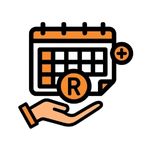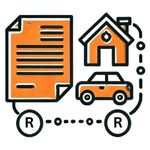
November is a period when many South Africans reassess their finances, with year-end expenses and festive spending adding pressure to household budgets. Deciding whether to apply for a loan this month depends on factors such as interest rates, economic conditions, and personal affordability. With the repo rate at 7.00% and the prime lending rate at 10.50%, November 2025 may offer opportunities to secure favourable credit, though upcoming decisions by the Monetary Policy Committee and possible year-end lender promotions could influence whether it is best to borrow now or wait.
Key Takeaways
- November Can Offer Stable Borrowing Costs: With interest rates currently steady, taking out a loan in November may help borrowers secure manageable repayments before any potential rate adjustments.
- Loan Approval Depends On Preparation: Improving your credit score, choosing the right lender, and ensuring affordability are key steps that increase your chances of being approved for credit.
- Options Exist If You Struggle To Repay: South African borrowers unable to meet repayments can request a payment holiday, restructure their loan, or enter debt counselling, all of which provide legal and financial protection.
What Is a Loan?
A loan is a formal financial contract where you receive money from a lender with the obligation to repay it. Loans can be structured in different ways, from short-term loans that are settled within a few weeks or months, to long-term credit agreements such as a home loan, which is usually repaid over a period of about 20 years.
When managed responsibly, a loan allows you to cover an expense that you cannot immediately afford, while giving you the flexibility to pay it back over time. The trade-off is that repayment is made in regular monthly instalments, and these payments include both the original amount borrowed and interest. This means the total repayment amount will be higher than the initial sum received.
How Much Does a Loan Cost?
The cost of borrowing is mainly determined by the interest charged, expressed as an annual percentage rate. Each monthly instalment is made up of two parts: the repayment of the principal debt (the original amount borrowed) and the interest portion, which represents the lender’s charge for allowing you to use the funds.
Several factors affect the interest rate applied to a loan. These include the type of loan, the repayment period, your credit history, the repo rate set by the South African Reserve Bank, and whether the loan is secured or unsecured. A secured loan is supported by an asset that acts as collateral, reducing the lender’s risk. An unsecured loan has no collateral linked to it, meaning the lender carries more risk. To balance this higher risk, lenders usually apply higher interest rates to unsecured loans.
About Arcadia Finance
Get the loan you need with ease through Arcadia Finance. Compare offers from 19 trusted, NCR-compliant lenders and pay no application fees. Enjoy a fast, transparent process designed to match your financial goals.
Types Of Loans In South Africa

Personal Loans
A personal loan is borrowed directly from a lender and is intended for individual use. Approval depends on the borrower’s credit history and ability to repay. These loans do not require collateral and are typically repaid in fixed instalments agreed upon between the lender and the borrower.

Secured Loans
When taking out a secured loan, the borrower must provide an asset as security. If repayments are not made on time, the lender has the legal right to claim the asset as collateral.

Instalment Loans
An instalment loan is structured so that the borrower repays the amount in smaller portions over an agreed period, most commonly in monthly instalments until the balance is cleared.

Student Loans
Student loans are often provided by government-backed institutions or financial providers to cover education costs. They are usually larger in value and repayment only begins once the student has completed their studies. The repayment is spread out over several years, making it more manageable.

Home Loans
A home loan allows individuals to purchase residential property while repaying the amount over a long period in instalments. The repayment terms can often be adjusted to suit the borrower’s income level and financial situation.

Business Loans
Business loans are offered to companies, especially start-ups or those expanding operations, to fund their expenses. Unlike personal loans, these are taken in the name of a business and come with varying interest rates and repayment terms.

Pension Loans
With a pension loan, part of a retirement or provident fund is used as security. Borrowers typically need at least R7,000 in their pension fund to qualify, and repayments are deducted monthly from their salary until the balance is settled.

Payday Loans
Payday loans are short-term credit facilities designed to be repaid when the borrower receives their next salary. They usually fall due at the end of the month and can carry high interest, making comparison between lenders very important.

Asset Finance Loans
Asset finance loans are mainly used for purchasing significant items such as vehicles. The repayment instalments are calculated based on the value borrowed and the terms agreed with the lender.

Overdrafts
An overdraft allows account holders to withdraw money even when their balance is insufficient. This facility is granted by a bank and is repaid once funds are deposited back into the account, with applicable interest charges.
Should South Africans Borrow in November?
October and November often bring renewed financial planning. With the repo rate now at 7.00 % and the prime lending rate at 10.50 %, many market watchers believe that borrowing in November may offer a chance to lock in favourable rates before any possible shifts.
Why November Could Be a Good Time to Borrow
- With interest rates stable for now, applying for a loan in November could help you take advantage of lower borrowing costs.
- If inflation remains subdued and economic growth modest, the central bank might avoid hiking rates, which could make your repayments more predictable.
- Borrowers who secure credit in November may benefit if rate cuts occur later, as they will have already locked in a lower base.
Why You Might Want to Wait
- The Monetary Policy Committee meets again in November 2025. Should they decide to raise rates in response to inflation or other pressures, future loan applications will likely carry higher interest.
- If your cash flow or financial situation is uncertain, delaying your borrowing decision may reduce risk in case interest rates climb.
- Some lenders might offer special year-end deals or promotions; waiting could allow you to access these incentives.

How To Improve Your Chances Of Getting A Loan
| Tip | Description |
|---|---|
| Check Your Credit Score | Your credit score reflects your financial history and borrowing behaviour, helping lenders gauge your reliability. Before applying, pay bills on time, correct errors on your report, and keep credit use low to show responsible management. |
| Approach The Right Lender | Different lenders have varying risk appetites and requirements. Apply to lenders that suit your profile and loan needs to increase approval chances. Being realistic about your eligibility improves your likelihood of success. |
| Can You Afford It? | Lenders want assurance that you can manage repayments comfortably. Assess your income, expenses, and loan amount carefully. Apply only for what you can afford to maintain financial stability and appeal to lenders. |
| Understand How The Loan Application Works | Each loan type has its own process and document requirements. Knowing what’s needed and when helps you prepare properly, avoid delays, and ensure your application runs smoothly. |
| Pay Down Existing Debt | A lower debt-to-income ratio boosts your creditworthiness. Paying off existing debts reduces financial pressure and signals to lenders that you manage obligations well, improving your approval chances. |
| Consider Collateral Or A Co-Signer | If approval is difficult, offer collateral or ask a trusted co-signer with strong credit. These reduce lender risk and can strengthen your application for a loan. |
| Be Honest | Always provide accurate details about your income, employment, and debt. False information or multiple rapid applications can lead to rejection and damage your credit record. Honesty builds trust with lenders. |
What Happens If You Cannot Repay A Loan?
When you are unable to meet your personal loan repayments, the most important step is to respond without delay. The first action should be to reach out to your lender, explain your financial situation truthfully, and ask about available solutions such as a payment holiday, reduced instalments, loan restructuring, or professional debt counselling. These measures can help you avoid potential legal action while creating a repayment plan that is more manageable.
- Contact Your Lender Immediately: It is critical to be transparent and straightforward. In South Africa, lenders are obligated under the National Credit Act to assess and consider reasonable repayment alternatives rather than moving straight to legal enforcement.
- Ask About A Payment Holiday Or Loan Restructuring: Certain lenders may allow you temporary relief, such as skipping one or more instalments, or they may restructure your loan by extending the repayment term so that your monthly commitment is reduced.
- Consider Debt Counselling: If you have reached the point of being over-indebted, working with a registered debt counsellor may be the best approach. Debt counselling allows your financial commitments to be renegotiated through a formal debt review process. Debt review comes with significant benefits, such as making instalments more affordable and providing legal protection against asset repossession or garnishee orders, where part of your income can be taken directly to repay outstanding debt.
- Prioritise Essentials And Reassess Your Budget: Focus on ensuring that essential living expenses, such as food, housing, and utilities, are covered first. After that, carefully review your budget, cutting unnecessary spending where possible so that additional funds can be redirected towards your debt repayments.
Conclusion
Taking out a loan in November can be a practical choice for South Africans, especially while interest rates remain steady and borrowing conditions appear predictable. However, the decision should be based on your individual financial situation, including your income stability, existing debt, and repayment capacity. Preparing properly by improving your credit profile, approaching the right lender, and borrowing only what you can reasonably afford will not only increase your chances of approval but also reduce the risks of financial strain in the future. If repayment becomes challenging, there are legal and structured options available, such as debt counselling, to help you regain control.
Frequently Asked Questions
Yes, November can be favourable as interest rates are currently steady, and borrowers may secure predictable repayments before any rate changes from the Reserve Bank.
The interest depends on the type of loan, repayment period, your credit history, the repo rate set by the Reserve Bank, and whether the loan is secured or unsecured.
It is possible, but your options will be limited, and you may face higher interest rates. Improving your credit score before applying will give you a better chance of approval.
Contact your lender immediately to discuss alternatives such as a payment holiday, restructuring, or debt counselling, which can provide legal and financial protection.
Some lenders may provide special deals or promotional rates during the festive season, but it is important to compare carefully to ensure the loan terms remain affordable.




